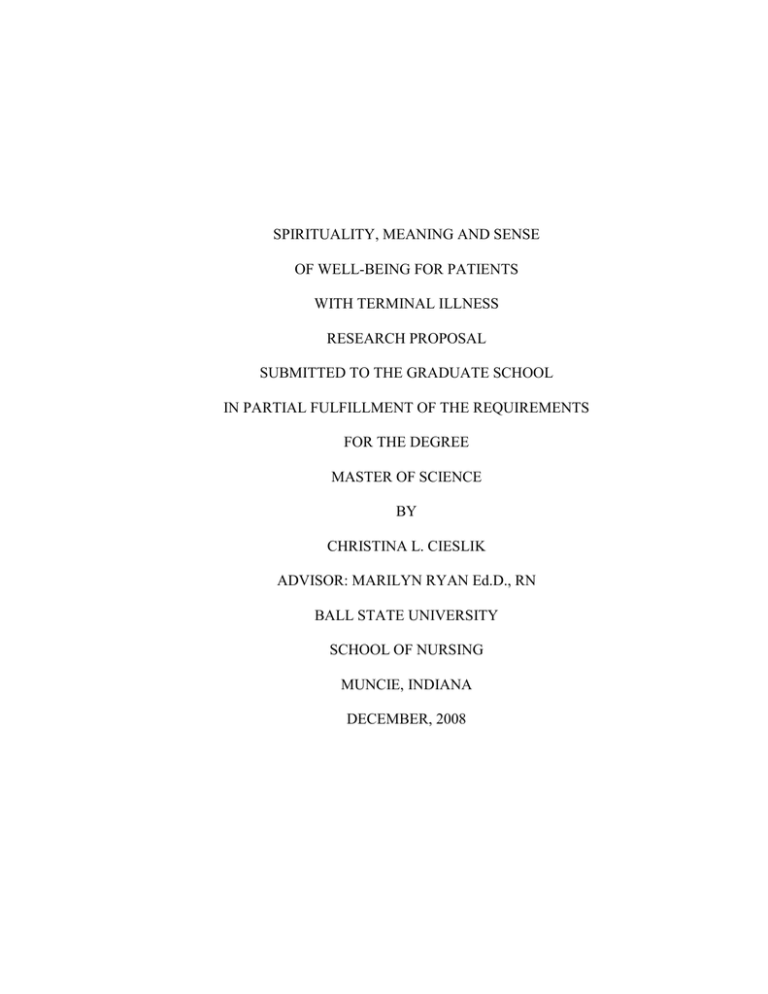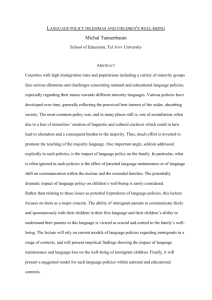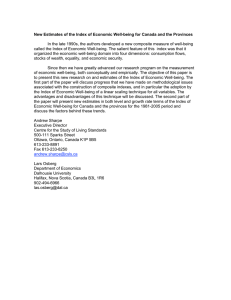SPIRITUALITY, MEANING AND SENSE OF WELL-BEING FOR PATIENTS WITH TERMINAL ILLNESS RESEARCH PROPOSAL
advertisement

SPIRITUALITY, MEANING AND SENSE OF WELL-BEING FOR PATIENTS WITH TERMINAL ILLNESS RESEARCH PROPOSAL SUBMITTED TO THE GRADUATE SCHOOL IN PARTIAL FULFILLMENT OF THE REQUIREMENTS FOR THE DEGREE MASTER OF SCIENCE BY CHRISTINA L. CIESLIK ADVISOR: MARILYN RYAN Ed.D., RN BALL STATE UNIVERSITY SCHOOL OF NURSING MUNCIE, INDIANA DECEMBER, 2008 ABSTRACT RESEARCH PAPER: Spirituality, Meaning of Life and Sense of Well-being in Terminally Ill Patients STUDENT: Christina Lynn Cieslik, R.N., B.S.N. DEGREE: Master of Science COLLEGE: College of Applied Sciences and Technology DATE: May, 2008 Individuals with terminal illnesses have an increased need for spiritual care. It has been found that well-being and spirituality have a positive relationship to physical responses to illness can impact an individual’s sense of well-being (Meraviglia, 2004). The purpose of this predictive study is to examine relationships among spirituality, meaning of life and prayer and a sense of well-being of physical and psychological responses after a diagnosis of a terminal illness. This study is a modified replication of Meraviglia’s (2004) study. Frankl’s Motivational Theory of Meaning is the framework. A sample will be 50 terminally ill patients recruited from two oncology/hematology physicians’ offices in Fort Wayne, Indiana. The four instruments are: Life Attitude Profile-Revised (patients’ meaning, purpose in life and motivation to find meaning), the Adapted Prayer Scale (types of prayer activity, prayer experiences, and attitudes toward prayer), Index of Well-Being (psychological well-being) and Symptom Distress Scale (degree of discomfort). Findings will provide information regarding spiritual care needs of terminally ill patients. i 2 References for Abstract Meraviglia, M. G. (2004). The effects of spirituality on well-being of people with lung cancer. Oncology Nursing Forum, 31 (1), 89-94.





